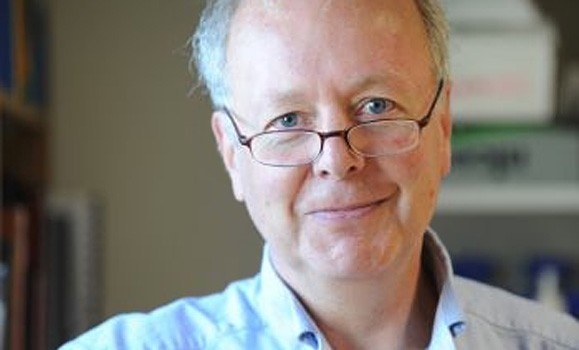The wear and tear of the life you live today could be reflected in the genes of your future grandchildren. How is this possible? Epigenetics.
This Friday, October 18, Dal’s annual launches with the theme of “Epigenetics: Mental health beyond nature and nurture.”
This year's series will present emerging research in the interaction between genetic information and environment, shedding new light on mental illnesses from schizophrenia to autism. ¬Ý
“Epigenetics is like the software of a computer: it dictates how the computer will run,” explains Ian Weaver, assistant professor in the Department of Psychology and Neuroscience and an organizer of the lecture series. “Some of the mechanisms of epigenetics are related to chronic illness, cancer, diabetes and mental illness. We’re putting a spotlight on these aspects, especially when looking at the inheritance of some of these diseases or disorders.”
A week of discoveries
From October 18 to 25, Dal will host four leading researchers to highlight their trailblazing research in epigenetics. Adrian Bird, Buchanan Chair of Genetics at the University of Edinburgh, kicks off the lecture series on Friday evening by sharing his groundbreaking research on the possibility of reversing of a form of autism known as Rett Syndrome.
“Everyone had assumed that once something was wrong with your brain in that way, it’s too late to do anything about it,” says Dr. Bird. “But what these findings say is that in this case, it’s not too late.”
“Dr. Bird’s research has opened doorways for the rest of our research,” says Dr. Weaver. “Mental illness has cost society a lot of money with people being unable to go to work or requiring more care, so being able to potentially reverse the effects of this could have huge benefits to society.”
Gene therapy is only one route for epigenetic research. On Monday, David Sweatt (UAB Medical School) will explore how epigenetics can affect memory formation from cellular to behaviourial levels. The following evening, Jonathan Mill (University of Exeter Medical School) will reveal the epigenetic pathways to mental illness addressing schizophrenia, autism and more. Concluding the series, Randy Jirtle (University of Wisconsin-Madison) will address the interaction between genes and the environment and how this can shape chronic diseases.
Public lectures, open ideas
“It’s not a lecture series just for researchers,” says Leslie Phillmore, associate professor with Dal’s Department of Psychology and Neuroscience and a co-organizer of the series.
“If you’re interested in genealogy or history, this series looks at how this could have possibly contributed to the person you are, on an epigenetic level.”
It’s also an incredibly interdisciplinary field.
“Through the lectures, we’ve had collaboration with the IWK and the university as a whole,” says Dr. Weaver. “Epigenetics works within what we’re currently working on in the university and the community. It doesn’t exist in a cloud.”
Dr. Bird also says sharing the implications of his research with the public is incredibly important.
“We’re in the golden age of biology,” says Dr. Bird. “Science isn’t just something you read in books, it’s done by ordinary people. I hope to entertain, educate and enthuse.”
2013 Killam Lectures
All lectures start at 7:30 p.m. in Ondaatje Hall, Marion McCain Building, Studley Campus. Admission is free.
For full details, visit
Friday, October 18
Adrian Bird – Epigenetics, Genetics and Rett Syndrome
Monday, October 21
David Sweatt – Epigenetic Mechanisms in Memory Formation
Tuesday, October 22
Jonathon Mill – Epigenetic Pathways to Mental Illness
Friday, October 25
Randy Jirtle – Epigenetics: How Genes and Environmental Interact

